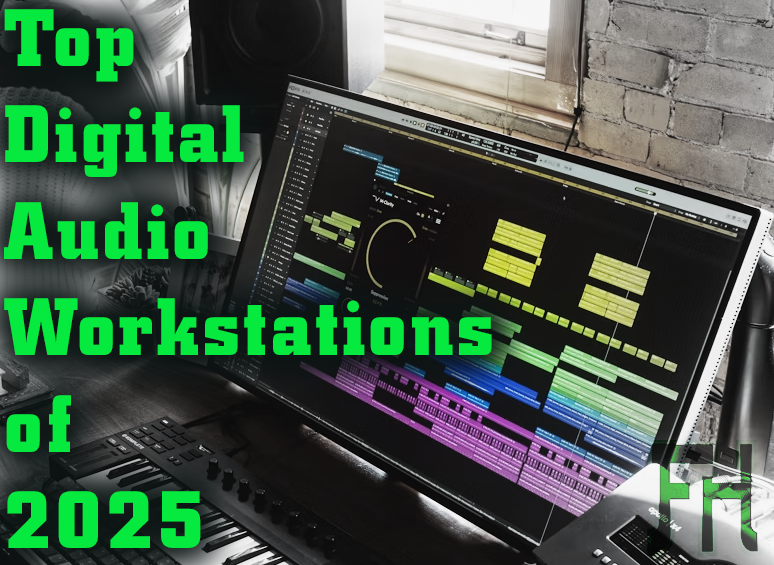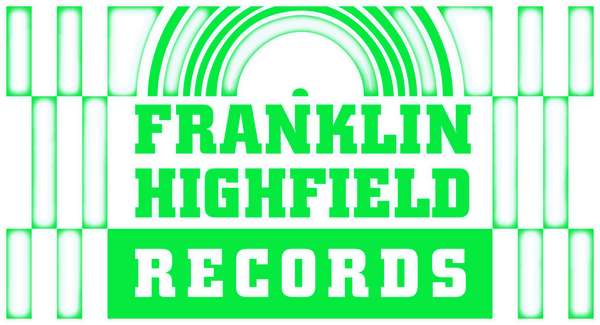
Share
In the realm of music production, having the right tools is crucial to unleashing your creative potential. Digital Audio Workstations (DAWs) have revolutionized the way music is composed, arranged, and produced. This blog post will introduce you to some of the most prominent DAWs that every producer should be familiar with. Whether you're a seasoned professional or just starting out, these DAWs can cater to a wide range of musical needs.
1. Ableton Live
Ableton Live is a powerhouse for live performance and studio work. Known for its intuitive interface and real-time music creation features, Ableton Live is perfect for electronic musicians and producers who thrive on improvisation. It offers a range of powerful tools for MIDI sequencing and audio processing.
Pros:
- Flexibility: Ableton Live is a highly flexible DAW that allows you to arrange your tracks in any order you like, making it easy to experiment with different arrangements and workflows.
- Advanced editing tools: Ableton Live has some of the most advanced editing tools available, including warping, slicing, and stretching audio clips, as well as powerful MIDI sequencing capabilities.
- Collaboration: Ableton Live allows multiple users to work on a project simultaneously, making it easy to collaborate with other musicians or producers.
Cons:
- Steep learning curve: Ableton Live has a steep learning curve and can be overwhelming for beginners. It takes time to master all of its features and functions.
- Limited hardware support: While Ableton Live supports many different MIDI controllers, it may not work seamlessly with all hardware devices. This can make it difficult to integrate external instruments or effects into your projects.
- Expensive: Ableton Live is a relatively expensive DAW compared to other options available in the market. With a base price of $199.99 you wont get much other than the software as they want you to buy additional features like sound effect packages and hardware.
2. Logic Pro X
Apple's Logic Pro X is a comprehensive DAW that provides an extensive suite of tools for recording, editing, and mixing music. It's particularly popular among Mac users due to its seamless integration with other Apple products. Logic Pro X offers a huge library of sounds and loops, making it versatile for various music genres.
Pros:
- Advanced editing tools: Logic Pro X offers a wide range of advanced editing tools that allow you to manipulate audio in powerful ways. This includes features like time stretching, pitch correction, and noise reduction.
- Integration with other Apple products: Logic Pro X is designed to work seamlessly with other Apple products, such as the MacBook Pro, iPad Pro, and iPhone. This makes it easy to transfer files between devices and collaborate on projects.
- Professional-grade sound quality: Logic Pro X has a reputation for producing high-quality audio that rivals even professional studio equipment. It also supports a wide range of file formats, including WAV, AIFF, and MP3.
Cons:
- Steep learning curve: Much like Ableton, Logic Pro X can be complex to use, especially for beginners.
- Limited collaboration capabilities: While Logic Pro X does support collaboration on projects, it can be difficult to work together in real-time with other users. This can make it challenging to collaborate on large-scale projects.
- Cost: Logic Pro X is a professional-grade software that comes at a high cost. What is nice about the $199.99 at time of writing this blog price tag is it's a one and done, no subscription.
3. FL Studio
FL Studio, also known as FruityLoops, has gained a reputation for its user-friendly interface and powerful features. It's an excellent choice for beginners and professionals alike, offering a wide range of plugins, samples, and an intuitive piano roll for creating complex melodies and rhythms.
Pros:
- User-friendly interface: FL Studio has a simple and intuitive user interface that makes it easy for beginners to use. It also includes many useful features such as drag-and-drop functionality, MIDI sequencing, and audio editing tools.
- Versatile: FL Studio can be used for a wide range of music production tasks, including beatmaking, electronic dance music (EDM), hip hop, and more. It has a large collection of built-in instruments, effects, and plugins that allow you to create almost any type of sound you want.
- Collaboration: FL Studio allows multiple users to work on the same project simultaneously, making it easy for producers to collaborate with other musicians or DJs. This feature is particularly useful when working remotely or in a studio setting.
Cons:
- Steep learning curve: While FL Studio has a user-friendly interface, mastering all of its features and functions can take some time. There is a steep learning curve for more advanced users who want to use the software's full potential.
- Limited audio editing capabilities: Although FL Studio includes basic audio editing tools, it may not be as powerful or feature-rich as other audio editing software such as Pro Tools or Audition. This can make it difficult to perform certain types of edits on your tracks.
- Expensive: FL Studio is a paid software, and the cost of the license can be quite high for some users. The licenses range from $99.00 to $449.00 for full access. Licenses are one time purchase and licensed material is updated automatically.
4. Cubase
Cubase has been a staple in the music production community for decades. It's known for its robust audio and MIDI editing capabilities, making it a go-to for composers and film scorers. Cubase offers a comprehensive toolkit that enhances workflow efficiency and sound quality.
Pros:
- Advanced features and capabilities for music production, including MIDI sequencing, audio recording, and mixing.
- User-friendly interface with a wide range of tools and functions to help users create high-quality music quickly and efficiently.
- Integration with other software and hardware, allowing for seamless workflow and collaboration with other musicians and producers.
Cons:
- Limited compatibility with certain hardware and operating systems, which can limit the range of devices that users can use Cubase on.
- Lack of built-in tutorials or training materials, making it difficult for new users to get started with the software without additional resources.
- Pricing starts at $99 which is not bad for this list, but thats just for the software. Like FL Studio, they offer add on packages as well as a professional version "Nuendo" for $999.
5. Pro Tools
Pro Tools is a standard in the professional audio industry. Widely used in music, film, and television production, Pro Tools offers unparalleled sound quality and versatile editing features. It's ideal for producers who require precision and reliability in their work.
Pros:
- Integration with other software: Pro Tools can be integrated with a wide range of other software and hardware, making it easy to work with other tools you may already be using.
- Flexibility: Pro Tools is highly flexible and can be used on both Windows and Mac platforms, as well as in a variety of different music production environments.
- Large community support: There is a large community of users who use Pro Tools, which means that there are many resources available to help you learn the software and troubleshoot any issues you may encounter.
Cons:
- Limited collaboration capabilities: While Pro Tools does have some collaboration features, it is not as robust as other music production tools when it comes to collaborating with others on projects.
- Not suitable for all types of music: Pro Tools is primarily designed for professional-level music production and may not be the best choice for certain types of music or genres.
- Limited automation capabilities: While Pro Tools does have some automation features, it is not as robust as other music production tools when it comes to automating repetitive tasks.
Bonus: Discover Unique Sounds with Franklin Highfield
While exploring these DAWs, you might be interested in expanding your sound palette. Check out The International Lover _ DISC for some unique sound options. Franklin Highfield offers innovative products that can complement your productions.
These DAWs provide a platform for creativity and innovation, enabling producers to turn their musical ideas into reality. Dive into their features, explore your unique style, and elevate your music production to new heights.

